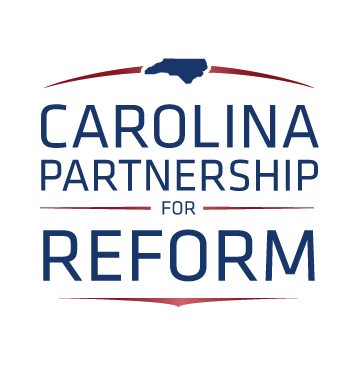What Our Polling Says on Abortion
Our organization’s mission is to further liberty, promote economic growth, and improve education in North Carolina. CPR doesn’t take positions or advocate on most social issues, but the post-Dobbs debate over what abortion policy should be in North Carolina has caught our attention.
Setting aside the arguments you normally hear for and against abortion, we certainly support policies that will allow the state to grow and prosper and that make North Carolina a great place to raise children.
In our recent statewide survey, we included several questions to gauge public sentiment for various policies related to both abortion and the expense of raising children.
Here's what we learned:
45% of voters consider themselves pro-life.
49% of voters consider themselves pro-choice.
As expected, there were sharp differences along party lines.
Pro-life: 77% of Republicans, 39% of Unaffiliateds, and only 19% of Democrats.
Pro-choice: 19% of Republicans, 54% of Unaffiliateds and 73% of Democrats.
But when asked about two specific policy options legislators are advocating for in the legislature, the results were more nuanced.
First, we asked respondents about making abortion legal for any reason at any point in pregnancy, a position that every legislative Democrat has signed on to support.
Would you support or oppose the North Carolina General Assembly passing a bill to legalize abortion at any point in a woman's pregnancy for any reason?
56% of voters oppose this proposal, including a majority of Unaffiliated voters and 30% of Democrats and pro-choice voters.
Second, we asked respondents about prohibiting abortions after the first trimester of pregnancy except in cases of rape, incest, or to protect the life of the mother, a position supported by many Republicans in the legislature:
Would you support or oppose the North Carolina General Assembly passing a bill to prohibit abortions after the first trimester—that is, after 12 weeks of pregnancy—except in cases of rape, incest, or where the life of the mother is in danger?
56% of voters support this policy, including 51% of Unaffiliated voters and 42% of Democrats.
We also asked voters about policies to increase access to birth control, incentivize mothers to have children, and help parents with the cost of raising a child.
A law that allows women to receive birth control pills over the counter at a pharmacy, instead of through a prescription from a doctor, has broad and robust support: 77% of voters, including huge 45%+ majorities of Republicans, Unaffiliateds and Democrats, support the policy. Studies have shown making prescription drugs accessible over the counter can reduce cost and improve health outcomes.
Voters also support providing a state tax credit to mothers who choose adoption instead of an abortion: 69% of voters back this proposal, including majorities from all three party registrations.
Finally, by an enormous 65-point margin – 78%-13% – voters support a policy proposal to increase the state’s child tax credit to $2,500 and make it universally available to all parents.
If the Reform Majority wanted to craft a bill with broad public support, they could consider incorporating the following policies based on our survey data:
Increase the child tax credit to $2,500 and expand eligibility to all families in the state.
Allow women access to birth control pills over the counter at a pharmacy instead of requiring a prescription from a doctor.
Create an adoption tax credit for mothers who choose to place a child for adoption instead of having an abortion.
Adopt a reasonable restriction to prohibit abortions after the first trimester with exceptions in cases of rape, incest, or to protect the life of the mother.
And a final important note: Our polling showed that when voters describe themselves as “pro-life” or “pro-choice,” it means very different things to different voters. We asked a follow-up to the traditional abortion question in the survey:
Which ONE of the following statements most closely describes your position on the issue of abortion?
1. Abortions Should Not Be Legal in Any Circumstance
2. Abortions Should Be Legal Only in Cases of Rape, Incest, and to Protect the Life of the Mother
3. Abortions Should Be Legal During the First Trimester of Pregnancy
4. Abortions Should Be Legal Until the 20th Week of Pregnancy
5. Abortions Should Be Legal in All Circumstances
This chart shows the responses to this question for different demographic groups.
Unsurprisingly, 69% of “pro-choice” voters believe abortion should be legal either up to 20 weeks of pregnancy or at any point in a pregnancy. And 75% of “pro-life” voters believe abortion should only be legal either in cases of rape, incest or to protect the life of the mother or at no point in a pregnancy.
Fascinatingly, about 10% of “pro-life” and “pro-choice” voters actually hold a position that aligns with the other side of the debate.
And if you’re looking for middle ground, a prohibition on abortions after the first trimester of pregnancy with exceptions for incidents of rape, incest, and to protect the life of the mother is the preferred position of 13% of pro-life and 20% of pro-choice voters.
You can review the complete crosstabs here.


